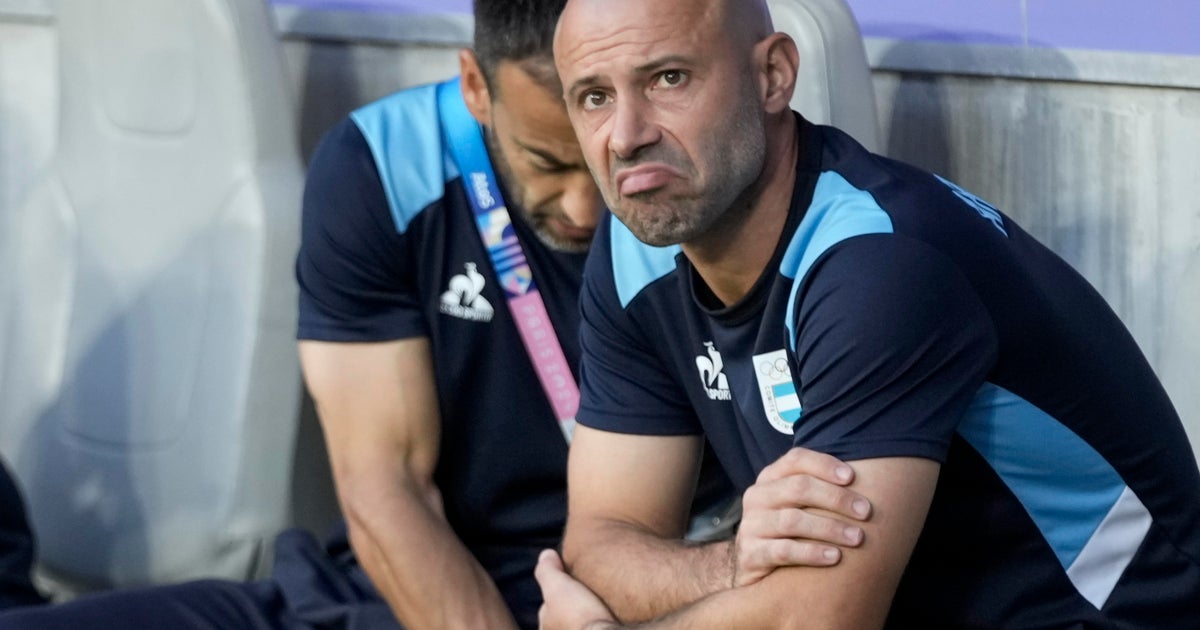Mom Denies Claim FAMU Student Champion Wanted Hazing
ORLANDO (CBSMiami/AP) – The parents of Robert Champion, A Florida A&M drum major who died after being hazed on a bus, denied Wednesday that their son accepted hazing as a band ritual and rejected claims by band mates he agreed to go through a brutal initiation ritual because it was seen as an honor.
That claim was part of deposition material released Wednesday as the state attorneys office prepares to try the case against band members it claims were responsible for Champion's death on a bus following an Orlando football game.
Champion, 26, had asked all season to go through the hazing ritual known as "crossing over," defendant Jonathan Boyce said. Multiple witnesses say the ordeal involved the participant going from the front to the back of the bus while others beat the person.
"It's a respect thing, you know," Boyce told detectives. "Well, he was wanting to do it all ... all season."
"Had they not killed him, perhaps he could defend the statement, but because they killed him, he cannot," said attorney Christopher Chestnut, who represents Champion's parents, in a meeting with reporters in Atlanta Wednesday afternoon.
"Robert was not a violent person, and for someone to say he would do hazing, I'm saying no," said his mother, Pam Champion.
Champion died last November after enduring hazing by other band members outside a hotel in Orlando where FAMU had played its archrival in football. His death revealed a culture of hazing in the famed band, which has performed at Super Bowls and presidential inauguration parades. An autopsy concluded Champion suffered blunt trauma blows to his body and died from shock caused by severe bleeding.
Champion's parents said at a news conference Wednesday that they are having a hard time believing that their son volunteered to be hazed.
"He was murdered on that bus, and no one signs up for that," Pam Champion said.
Attorney Chestnut said the school has shown no leadership in getting to the bottom of the hazing problem. He thinks the bandmates charged with hazing should face murder charges, but blames the University for not controlling the whole problem.
"I think this is an institutional problem, and thats what we're here to say," he said. "The students certainly made a mistake, but these are young people who subscribe to a culture that most of them all their live all they ever wanted to do was wear that band uniform, and they'd do whatever it took to wear it."
"This is murder. This was a planned event. There was a conspiracy to harm someone," he said. "They should be charged appropriately."
Prosecutors in Orlando have more than 1,500 pages of evidence against the 13 people charged in Champion's death last year. Eleven defendants are charged with a third-degree felony and two are charged with misdemeanors.
Drum major Keon Hollis told detectives he went through the same hazing ritual as Champion the night he died. He said there were at least 15 people on the bus.
He said Champion was the next person to be hazed after him. He said Champion seemed fine immediately afterward, but said he was thirsty. Hollis said he gave Champion some water.
Champion soon collapsed and later died.
Another hazing ritual called "the hot seat" involved getting kicked and beaten with drumsticks and bass drum mallets while covered with a blanket on a band bus called, "Bus C," band member Marc Baron told investigators. Baron isn't charged and wasn't on the bus the weekend Champion died.
Depositions offered clues to the defenses the defendants will use.
Boyce and another defendant, Shawn Turner, claimed they tried to help Champion get off the bus by pulling him through the gauntlet of band members.
"So I grab him to try to keep everybody off him, and I grab him and I'm pulling him and I'm pulling him," Boyce told detectives. "People are kicking him so I stopped them from kicking him and I put my body around his body."
Defendant Aaron Golson denied getting on the bus where the hazing took place. He said he got a ride back from the game with a friend.
"I don't know anything that happened with Robert," Golson said.
Golson also told detectives that Champion wasn't into the hazing rituals.
"Man, I'm shock(ed) if that happens," Golson said when told that Champion chose to get on the bus to be hazed.
Another defendant, Caleb Jackson, at first told detectives that he wasn't on the bus when Champion was beaten but then changed his story when he was told that hotel video surveillance showed him getting off the bus. At the time of Champion's death, Jackson was on probation for a felony battery charge.
"I love Robert like a brother, more than ya'll, any, everybody in this band loves this man like a brother, you know what I'm saying," Jackson said.
FAMU's famed Marching 100 band was suspended shortly after the incident, and officials have said it will remain sidelined at least through the 2012-2013 school year.
The school also tried to fire band director Julian White. White's dismissal was placed on hold while the criminal investigation unfolded, but he insisted that he did nothing wrong and fought for months to get reinstated. He announced his retirement earlier this month.
Under a policy in place for years before Champion's death, band members attended a mandatory anti-hazing workshop and sign a pledge saying they will not participate in hazing or submit to it. Violators were supposed to be kicked out of the band.
"There has been a mismanagement of this situation from Day 1," said attorney Chestnut. "This institution has protected the villians and not the victims. "
(TM and © Copyright 2012 CBS Radio Inc. and its relevant subsidiaries. CBS RADIO and EYE Logo TM and Copyright 2012 CBS Broadcasting Inc. Used under license. All Rights Reserved. This material may not be published, broadcast, rewritten, or redistributed. The Associated Press contributed to this report.)



